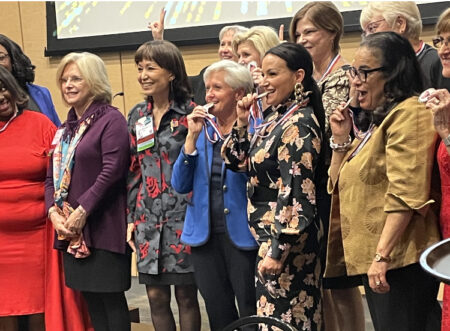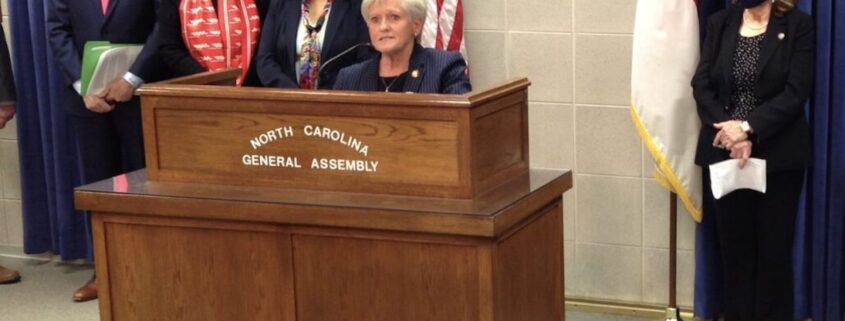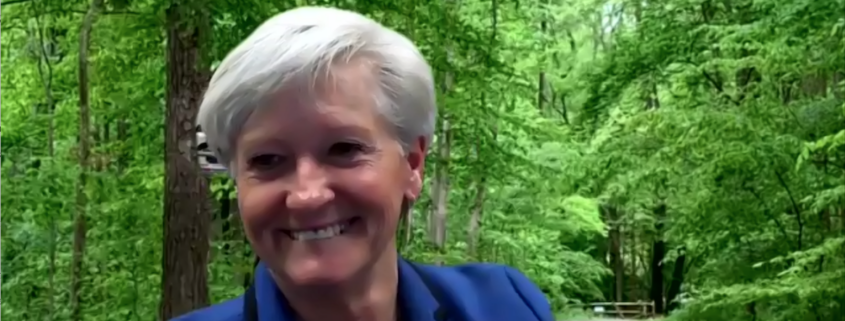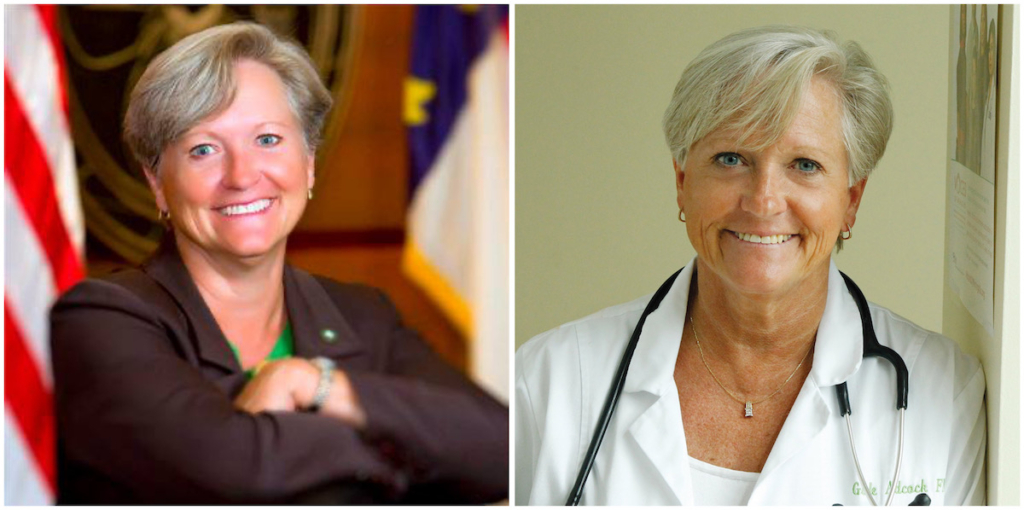Cary, NC — The latest legislative update from the blog of NC Representative Gale Adcock.
Spring Melts Into Summer at the General Assembly
May 14 was the “crossover deadline” for House and Senate bills to pass in their chamber, keeping them eligible for action during the remainder of the session. While there are a few exceptions (bills on elections, redistricting, constitutional amendments and appointments), legislators are always acutely aware of this ticking clock, making the final days before “crossover” frenetic and long.
After this milestone, budget negotiations began in earnest. The first step was an agreement between House and Senate leadership on a spending limit: $25.7 B in the first year and $26.6 B in year two (this negotiation took several weeks longer than usual). On June 21 the Senate released its budget, and the second of 2 recorded votes was taken on June 25. The budget bill now goes to the House for consideration.
Total spending cannot change in the House version of the budget, but funding levels for specific programs surely will. The House is expected to take its 2 budget votes by mid-July. I hope to see a House budget that invests wisely in public education, health care, small business, infrastructure (including high-speed internet; water & sewer projects; K-12, community college and university capital projects) and that includes tax policy to help low and middle-income families.
Here’s what else happened in the 6 weeks since crossover.
Around the District
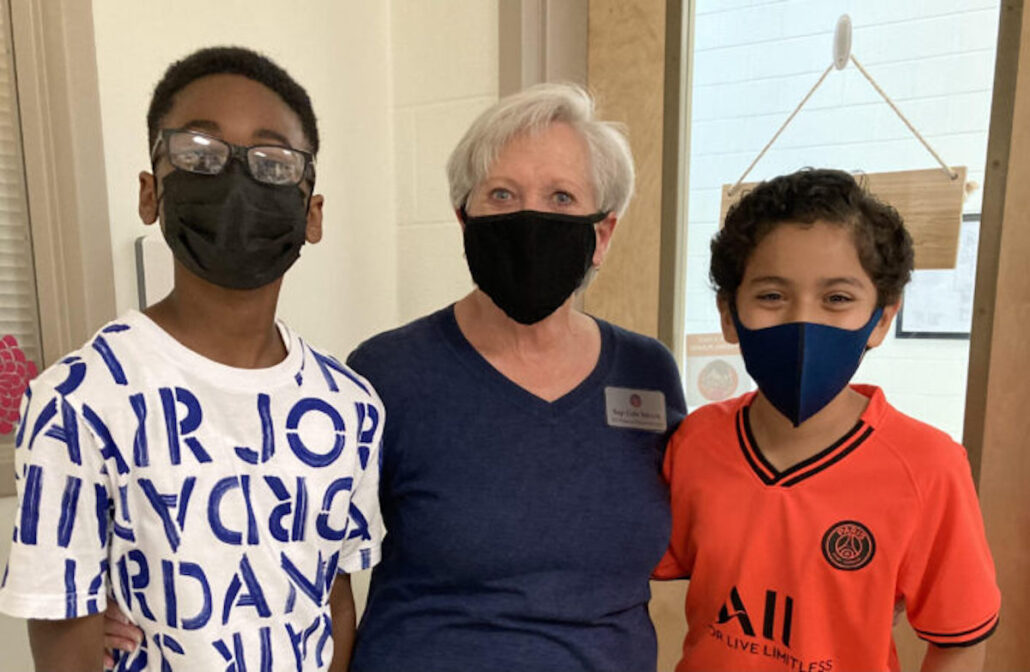
These 4th graders greeted me on my May 21 visit to Hortons Creek Elementary School. While there I learned a lot about resilience, creativity, and the numerous pivots made by this school community since March 2020.
In addition to a walkabout with principal Sandy Chambers and observation of traditional and hybrid classroom teaching, I participated in a group discussion with teachers, PTA representatives, the principal and the assistant principal. I heard about the difference between “learning loss” and the more descriptive “unfinished learning” experienced by these students as observed by their teachers and parents.
Like all of us, everyone at Hortons Creek looks forward to the return of “normal,” but they are also committed to using what they’ve learned about new efficiencies and the utility of technology. Thanks to 4th-grade teacher Laura Abraham for the invitation to return to Hortons Creek, my third visit since the school opened in August 2017. Go Hawks!
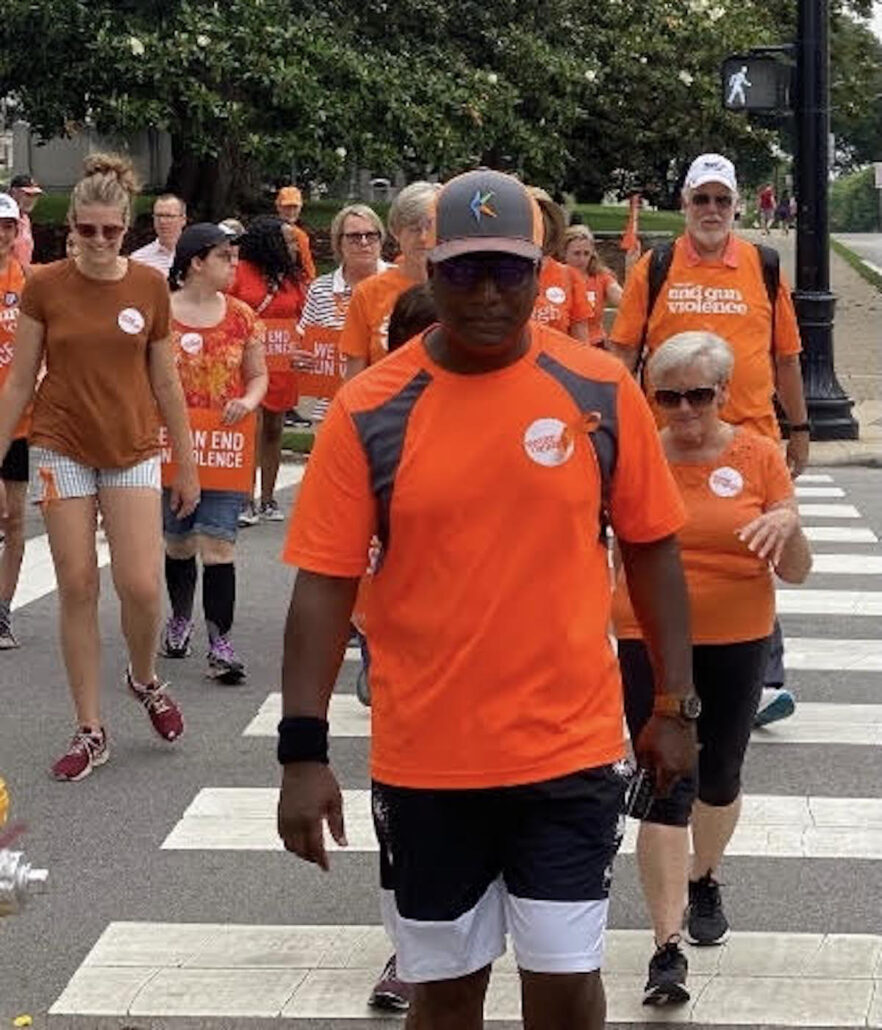
Along with advocates from Cary and Apex, on June 5 I participated in a walk to spotlight deaths from gun violence. I was joined by Representatives James Roberson, Julie von Haefen, Marcia Morey and Senator Natalie Murdock.
Thanks to Moms Demand Action for organizing the event and to Trophy Brewing & Pizza for providing food and cold beverages.

Each year the Cary Chamber invites me to speak about state government and public service at the final meeting of Leadership Cary.
One of my favorite Chamber events, this is a great opportunity to hear what’s “top of mind” for emerging community leaders. It was also an invigorating way to start my day on June 15.

Visionary is the word that stuck with me throughout the June 26 groundbreaking for Phase 2 of Downtown Cary Park. After 2 tenacious decades of Council leadership, from land acquisition to funding innovative design, this destination park will open in summer 2023.
Meanwhile, Down on Jones Street
Several of my bills made “crossover” and await action in the Senate.
HB 93, ensures patients are offered education about the availability and use of opioid antagonist drugs when they are given a prescription for opioids.
HB 96, increases access to health care by allowing pharmacists to administer a greater variety of injectable drugs. There are 20 NC counties without a single primary care provider, but each of our counties has at least one pharmacy.
HB 178, requires patient access to accurate prescription drug benefit cost information.
HB 322, a local bill that allows Cary to stop collecting local ABC license fees. The idea for this bill to assist local businesses came from the town.
HB 524, guarantees access to oral chemotherapy treatment during a pandemic (when oral therapy is an appropriate treatment option).
Two of My Bills Soon to be Law
HB 272, lowers the state’s acceptable blood lead level, protecting more children from impaired brain development and other adverse health impacts of childhood lead exposure. It went to Governor Cooper on June 23.
HB 629, clarifies a portion of the STOP Act, a 2017 law to decrease opioid addiction and overdose deaths. It went to Governor Cooper on June 23.
Organ Donation Made Easier
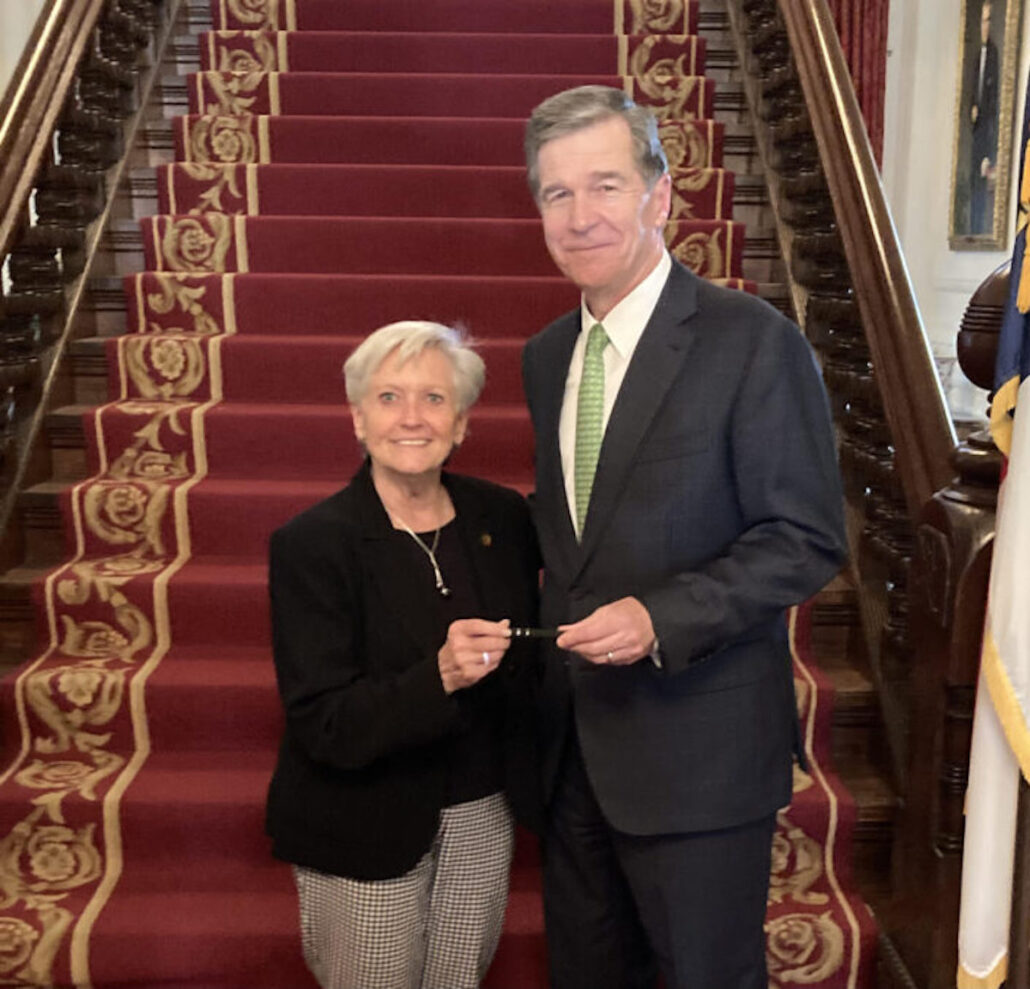
As co-sponsor of the House companion to SB 135, Improve Anatomical Gift Donation Process, I was present as Governor Cooper signed the bill into law on June 14. I’ve been a registered organ/tissue donor since 21 and a bone marrow donor since my 30’s. My cousin’s life was forever changed by a kidney transplant from a living donor 5 years ago. As a legislator and as a nurse practitioner, it is my hope this law will increase the number of individuals receiving life-saving and life-changing transplants.
Delayed Census Impacts Municipal Elections
Although the 2020 census count is complete, county and city level results won’t be available until fall due to pandemic delays. In about 10% of North Carolina’s 500 municipalities, local odd-year elections include district representatives elected by voters who live in the same district. Whether elected by district or at large, districts must be drawn containing an equal number of individuals (plus/minus 5% is the constitutionally allowable variation).
Legislators worked with the NC League of Municipalities and other stakeholders to devise a solution that works for most affected municipalities. The final bipartisan product, SB 722, went to Governor Cooper on June 16.
Cary’s Twist
Four of 7 Cary Town Council members are District representatives elected only by District voters. Recognizing early on that census numbers would be delayed and wishing to avoid negative impacts of a delayed election, last fall the Town hired a private demographer to get an accurate population number. With this data, town staff drew new districts using redistricting criteria used in the past.
Based on months of work, Cary is prepared to hold its October election as scheduled rather than delay it to Spring 2022 (the gist of SB 722). Representative Allison Dahle (a vice-chair of the Election Law & Campaign Finance Reform committee) and I are working with legislative leadership and Town staff on a legislative fix that allows Cary to hold its election on schedule.
Shout-Out to Morrisville

First awarded in 1949 by the National Civic League, the All-American City Award recognizes communities that leverage civic engagement, collaboration, innovation and inclusiveness to address local issues. Congratulations to the citizens, Council and staff of Morrisville for recently being named a 2021 All-American City!
Thanks for Staying in Touch
I welcome your input and feedback. Reach me at [email protected] or 919-733-5602.
My Legislative Assistant Suzanne Smith can assist you and can also connect you to other state government agencies as needed. Wake County has many COVID-19 vaccine resources available, so if you need information about how to get a shot, please give us a call. Stay safe out there.
Yours in service,
Gale
From the blog of NC District 41 Representative Gale Adcock.
All the Cary news for the informed Cary citizen. Subscribe by email.


